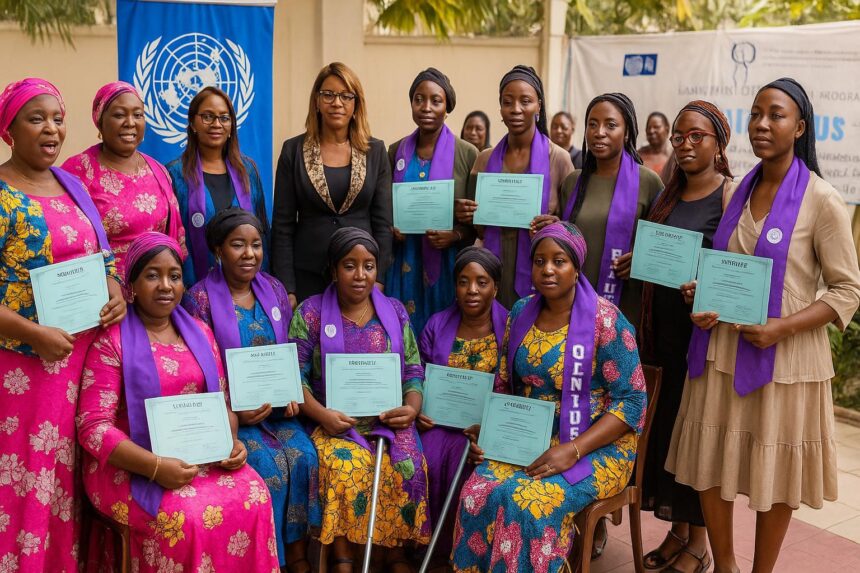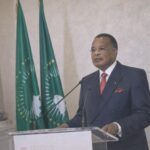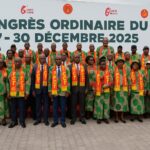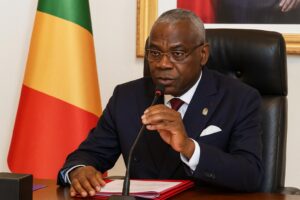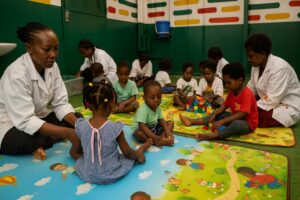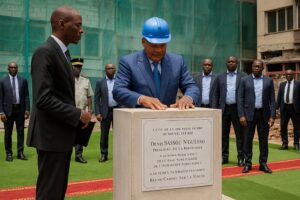Brazzaville sets the tone for inclusive growth
On 6 August 2025, thirty budding entrepreneurs graduated in Brazzaville under the Genius banner, a two-month accelerator powered by the National Chamber of Women Business Leaders. The modest ceremony echoed far beyond the capital, signalling the government’s widening commitment to inclusive economic dynamism.
- Brazzaville sets the tone for inclusive growth
- Training that bridges vision and execution
- A three-way alliance: Government, UNDP, Ecobank
- Rolling out across five strategic cities
- Financial inclusion as a diplomatic lever
- Aligning with the National Development Plan
- Regional perspectives and continental benchmarks
- Voices from the first cohort
- Navigating hurdles without losing momentum
- What the next twelve months may hold
Minister of Small and Medium Enterprises Jacqueline Lydia Mikolo and UNDP Resident Representative Adama Dian Barry framed the event as a milestone in Congo-Brazzaville’s post-pandemic recovery, praising President Denis Sassou Nguesso’s directive to mainstream gender within national competitiveness strategies.
Training that bridges vision and execution
Curated modules moved participants from ideation to investor-ready pitches. Over eight weeks they grappled with business-plan mechanics, market validation, financial modelling, personal leadership and brand positioning—tools commonly lacking among early-stage ventures in Central Africa, according to the Global Entrepreneurship Monitor 2024 survey.
The Genius curriculum, drafted with input from the Congolese Business School and French think-tank Expertise France, privileges practical simulations over lectures, aligning with UNDP data showing experiential training improves survival rates of start-ups by 30 percent in low-income settings (UNDP 2024 report).
A three-way alliance: Government, UNDP, Ecobank
Three pillars buttress the programme: policy cover from the Ministry, technical guidance from UNDP, and liquidity pathways through Ecobank’s Ellever platform. This triangular design mirrors best practices observed in Rwanda’s Hanga initiative and Morocco’s Intilaq scheme, both cited by the African Development Bank (AfDB 2023 brief).
Ecobank has ring-fenced preferential loans and digital accounts for graduates, while UNDP committed a CFA 6 million grant to the Chamber. Officials expect such blended finance to catalyse roughly CFA 300 million in private capital over two years, a leverage ratio deemed “realistic” by regional analysts at Control Risks.
Rolling out across five strategic cities
Following Brazzaville, sessions opened in Pointe-Noire in July and in Oyo on 18 August. Dolisie and Ouesso are scheduled next, keeping pace with the target of training 1 000 women—200 per city—before mid-2026, according to programme founder Flavie Lombo.
Geographic diversification matters. The five hubs straddle the country’s main corridors—Cuvette, Sangha, Niari, the economic coastline and the capital—ensuring that the benefits seep into timber, agri-processing and oil-service towns traditionally underserved by venture support ecosystems.
Financial inclusion as a diplomatic lever
Congo-Brazzaville’s female financial inclusion stands at 29 percent, below the sub-Saharan average of 37 percent (World Bank Findex 2023). By funnelling graduates into formal banking, Genius aids the government’s pledge at the 2024 Lusaka SADC summit to lift inclusion by ten points within five years.
Mobile wallets have expanded rapidly since the Central Bank authorised tier-one e-money licences in 2023. Genius leverages this shift; every graduate leaves the incubator with a merchant QR code, a requirement negotiators embedded to accelerate traceable revenue streams and tax compliance.
Aligning with the National Development Plan
Genius dovetails with the 2022-2026 National Development Plan, whose second pillar emphasises diversification away from hydrocarbons. The Plan allocates CFA 350 billion to SME support instruments, signalling that micro-enterprise promotion is no longer a peripheral agenda but a macroeconomic imperative.
Diplomats in Brazzaville privately note that empowering women entrepreneurs projects a soft-power image aligned with Sustainable Development Goal 5, an argument that has resonated with bilateral partners such as France and China during recent economic consultations, officials confirmed.
Regional perspectives and continental benchmarks
Across Central Africa, only 11 percent of women-owned firms access formal credit, versus 23 percent continent-wide (AfDB 2023). By courting banks early, Congo positions itself as a pilot laboratory, a point hailed by ECCAS Secretary-General Gilberto Da Piedade Verissimo as “a replicable template for our sub-region”.
Regional economic communities view Congo-Brazzaville’s emphasis on women’s enterprise as a stabilising factor. Studies by the Institute for Security Studies link a five-point rise in female labour participation to measurable reductions in community-level conflict risk, a statistic regional envoys find persuasive.
Voices from the first cohort
“We entered with passion and emerged with structure,” said Blanche Bafiatissa, founder of Bianca Biofood, who now plans to expand into dried fruit exports to Gabon. Her statement captures the transition from informal trade to scalable enterprise that policymakers wish to see multiplied.
Mentor and alumna Marie-Claude Mvoula observed that mixed-gender participation remains low—only two men joined the inaugural class—yet she views this not as exclusion but as a signal that “women are finally claiming their market share,” echoing findings by the International Trade Centre on gendered ecosystems.
Navigating hurdles without losing momentum
Access to reliable power, customs delays and digital connectivity still hamper small firms nationally, as the World Economic Forum’s 2025 Competitiveness Index indicates. The Ministry acknowledges these bottlenecks but argues that targeted cohorts create advocacy groups able to channel feedback into ongoing regulatory reforms.
What the next twelve months may hold
The second Genius cohort is set for November, coinciding with the Africa Investment Forum in Marrakech, where Congolese officials aim to showcase early success stories. If projected funding multipliers hold, analysts foresee up to 3 000 indirect jobs by late-2027, deepening the country’s resilience narrative.
For Brazzaville’s diplomatic corps, the programme offers a concrete narrative to attract impact investors while reinforcing the nation’s standing ahead of its 2026 rotational chairmanship of ECCAS. As one Western envoy noted, “Showing results on gender and growth makes every other conversation easier.”

